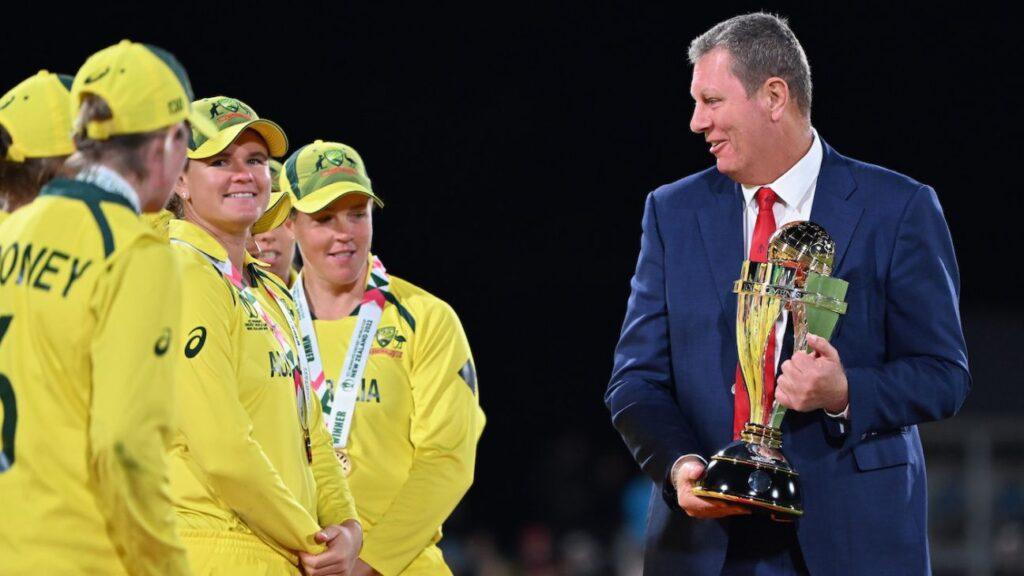“I think I’m at the top of the game and I can’t tell you who plays around the world. In fact, I didn’t realize Sri Lanka were in South Africa until I read about Marco Jansen’s seven wickets this morning,” Barclay said. “So we’ve lost perspective. It’s not good for the game at all. It’s a disaster. The schedule is incredibly congested and the self-interest is such that it’s almost impossible to untangle it all, because no one is going to give up the content.”
Barclay said he hoped Shah could take advantage of India’s stature to lift the game out of the mess it was in. “I think he has a great opportunity to use what he has in his experience to help India take the game to another level, but without also coming under the yoke of India,” Barclay said. “We’re very fortunate to have India, it’s a big contributor to the game by every measure, but a country having that amount of power and influence distorts a lot of other outcomes, which isn’t necessarily helpful in terms of that global growth.
“Jay has the ability to further incorporate India into the international arena. There are a number of things India could do to help unite and grow the game, including commercially helping to pool rights abroad, using its teams to give the opportunity to smaller full members and emerging countries, using their influence to open up new territories and markets, working closely with the ICC to help benefit members, as examples.”
Barclay also warned of an imminent financial realignment that the game could be forced to make, in the form of its upcoming commercial and media rights deal. The current rights agreement is the most lucrative the ICC has signed, valued at more than $3 billion. Most of that value comes from the Indian market, where Disney-Star* has the rights to broadcast ICC events until 2027. This has resulted in income distributions to full members of a size they have never seen before, and has become particularly important. for members such as PCB, NZC, CWI, SLC and CSA for whom ICC’s annual income represents a significant portion of their total earnings.
“If you really want to make a political statement, don’t play them in a World Cup. Sure, it may cost you a place in the semi-finals, but principles are principles. It’s not about having half a principle.”
Greg Barclay on Cricket Australia’s stance on Afghanistan
Barclay said that ultimately the deals “far exceeded” the actual value and that, over time, there will be a correction.
“At some point this is going to be corrected,” he said. “It’s a market. Is it going to be a strong and severe correction? Or is it going to be long and slow? Or maybe there will be an alternative broadcaster coming to the market? But people have been saying that for 10 years ago, the New Zealand cricket had a deal with Amazon but it didn’t work out so I don’t think they’re going to be the white knight that everyone is anticipating. I just think what’s ahead of us is what we’ve got.
“I know that when we did our current deal, the valuations were much higher than what we got before we went to market. We got £2.4bn fresh out of India. The next biggest is UK Sky. They did an eight-deal deal. a year, which was £237 million, so that’s 10% of the deal with India for twice as long. So if we go back to the original projection of £800 million, this is more than half of that. ICC revenues less than that there is no discernible substitute for that at this time.”
One of the prominent issues that marked Barclay’s era was that the country’s Taliban government did not allow the Afghanistan Cricket Board to field a women’s team. Introducing a women’s team and program is a central tenet of full membership and, despite calls to suspend membership, Barclay said the ICC had been right not to sanction Afghanistan’s membership status.
“It’s not the fault of the Afghanistan board. They used to have women’s cricket. I think our approach has been right,” she said. “It would be easy to kick Afghanistan out, but their board hasn’t done anything wrong. They’re just working under a decree and a set of laws that say this is the right thing to do. I don’t think that’s the case. Kicking them out would make a big difference.” for the ruling party there.
“Maybe I’m a little naïve, but I think cricket is a force for good there and brings a lot of joy to a lot of people. It’s best to leave it there and hope it can foster a bit of change.”
Instead, Barclay did point out the double standards of boards, such as Cricket Australia, who canceled multiple bilateral series with the Afghanistan men’s team as sanctions, but played them in ICC events. “If you really want to make a political statement, don’t play them in a World Cup. Sure, it may cost you a place in the semi-finals, but principles are principles. It’s not about having half a principle.”




